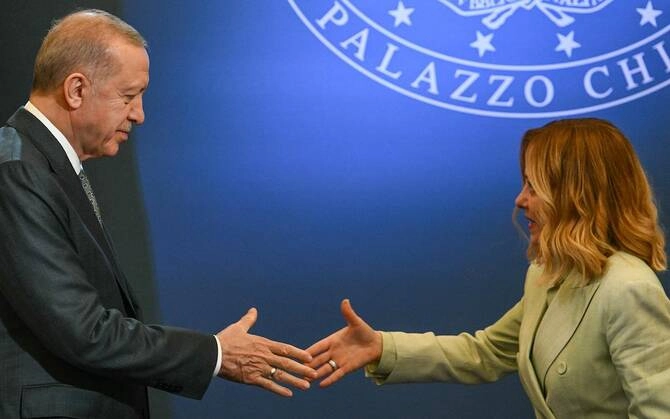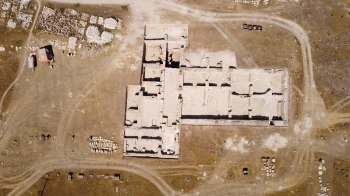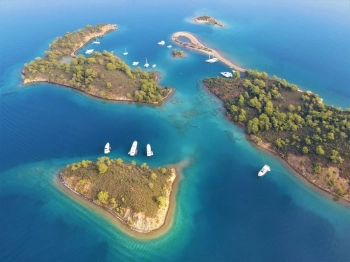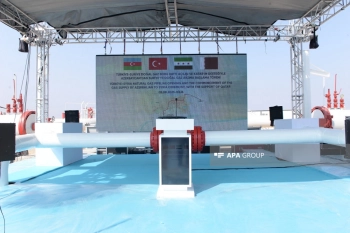What brings Turkey, Italy, and Libya together in a high-stakes diplomatic meeting? Why is this trilateral summit significant for Mediterranean geopolitics? How will the outcomes impact regional security and economic cooperation? These questions took center stage as Turkish President Recep Tayyip Erdogan hosted Italian Prime Minister Giorgia Meloni and Libyan Prime Minister Abdul Hamid Dbeibeh in Ankara for a critical discussion on shared challenges and opportunities.
The Strategic Importance of the Trilateral Summit
The meeting between the leaders of Turkey, Italy, and Libya represents a strategic alignment of nations with interconnected interests in the Mediterranean. Turkey has been a key player in Libyan affairs, particularly since the 2019 maritime deal that redefined energy exploration rights. Italy, as Libya's former colonial power and a major EU state, maintains strong economic and security ties. The summit aimed to address pressing issues such as migration, energy security, and counterterrorism while fostering economic partnerships.
A real-world example of this trilateral cooperation can be seen in the energy sector. Turkey and Italy have both invested heavily in Libya's oil and gas infrastructure, with Italian energy giant Eni operating several joint ventures. The stabilization of Libya could unlock new opportunities for energy exports to Europe, helping diversify energy sources away from Russian supplies.
Key Discussion Points: From Migration to Energy
Managing Migration Flows
One of the most urgent topics was the management of migration routes through Libya to Europe. All three nations face pressure from irregular migration, with Libya serving as a major transit point. The leaders discussed enhanced cooperation on border security and humane migration management, building upon existing agreements between Turkey and the EU.
Energy Cooperation
The summit explored ways to leverage Libya's vast energy resources while ensuring stability in production and transportation. Turkey's expertise in energy infrastructure could complement Italy's technical capabilities and Libya's resource base, creating a win-win scenario for all parties.
Practical applications include potential joint ventures in renewable energy projects in Libya's desert regions, which could eventually supply clean energy to Europe via undersea cables—a project already being explored by Italian firms.
Security Challenges and Counterterrorism Efforts
The fragile security situation in Libya remains a concern for all parties involved. The summit addressed ongoing efforts to combat terrorist groups and stabilize conflict zones within Libya. Turkey has provided military training to Libyan forces under a 2019 agreement, while Italy has supported EU-led peacekeeping initiatives.
A notable example of security cooperation is the joint patrols conducted in Libyan territorial waters to prevent human trafficking and arms smuggling—operations that require coordination between Turkish, Italian, and Libyan coast guards.
Economic Opportunities and Reconstruction
With Libya needing massive reconstruction after years of conflict, the summit explored how Turkish and Italian companies could participate in rebuilding infrastructure. Turkey's construction sector has already been active in Libya, while Italian firms have historical expertise in the country's oil and gas sector.
Potential projects include:
- Rebuilding Tripoli's international airport
- Modernizing Libya's electricity grid
- Developing new housing projects
- Expanding port facilities for increased trade
These initiatives could create thousands of jobs in Libya while providing business opportunities for Turkish and Italian firms.
Regional Implications and Future Prospects
The Ankara summit has broader implications for Mediterranean geopolitics. By strengthening cooperation among these three nations, the balance of power in the region could shift, particularly regarding energy exploration rights and migration management. The meeting also signals Turkey's continued engagement in North African affairs despite tensions with some European partners.
Looking ahead, observers will watch for:
- Follow-up meetings at ministerial levels
- Concrete agreements on energy projects
- Joint military training programs
- Progress on migration management
The success of this trilateral format could inspire similar cooperation mechanisms in other regions facing complex transnational challenges.
Conclusion: A Model for Regional Cooperation?
The Turkey-Italy-Libya summit represents an innovative approach to addressing interconnected regional challenges. By combining Turkey's regional influence, Italy's EU connections, and Libya's strategic location and resources, the three nations have created a framework that could yield tangible benefits in security, energy, and economic cooperation.
While challenges remain—particularly in stabilizing Libya—this trilateral format offers a promising model for addressing complex geopolitical issues through dialogue and shared interests rather than confrontation. The coming months will reveal whether this cooperation can deliver concrete results that enhance regional stability and prosperity.






